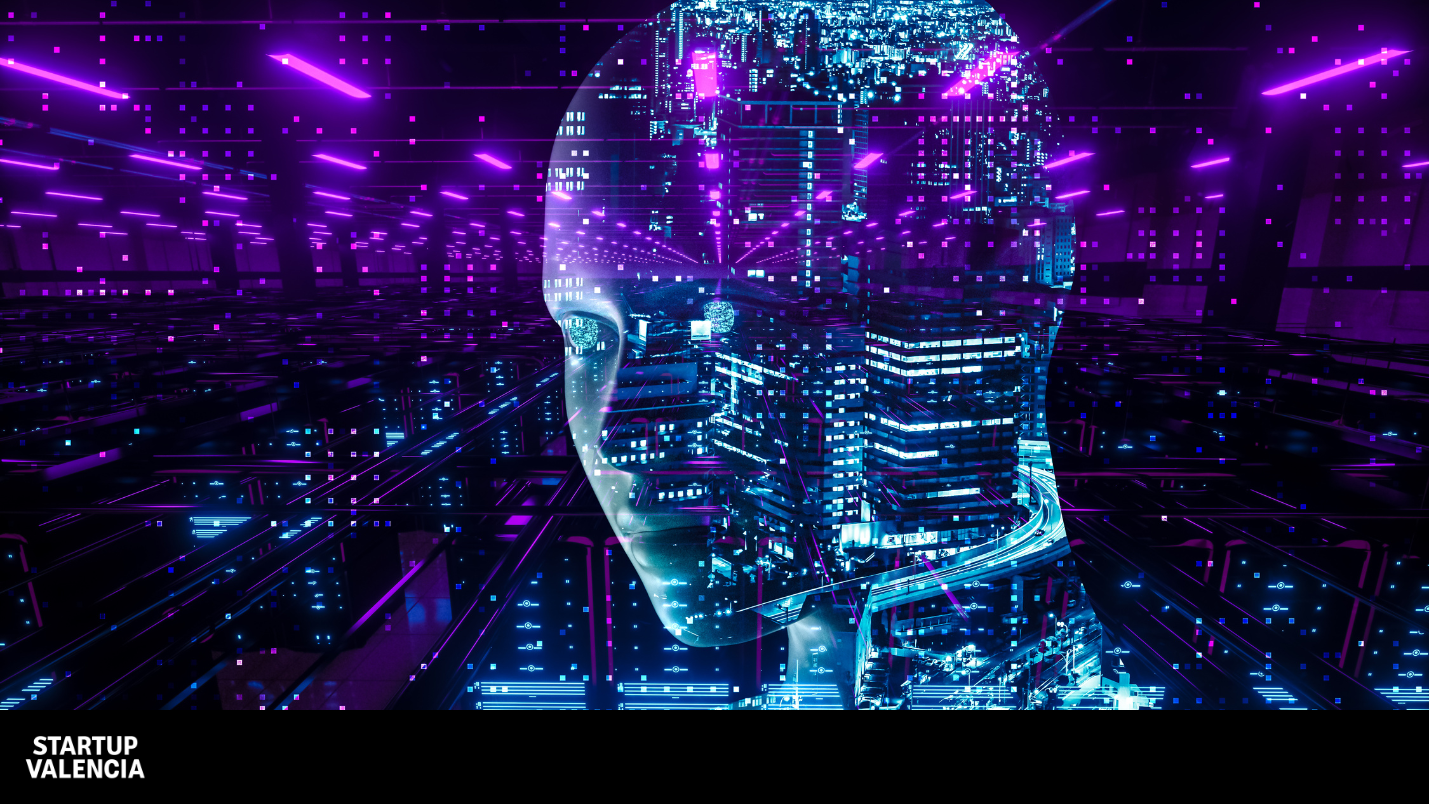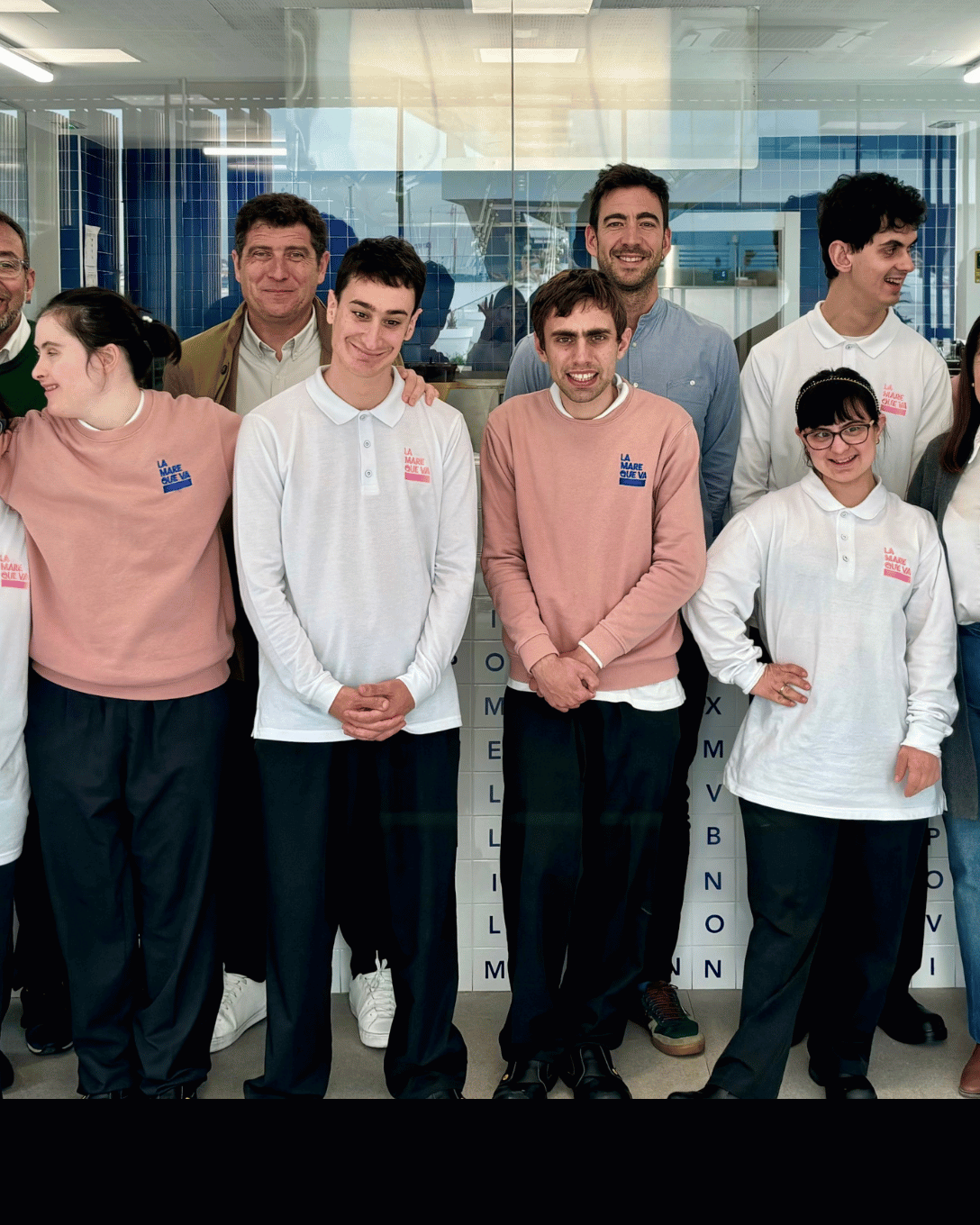A certain song famously declared that “video killed the radio star,” alluding to the presumed obsolescence of radio broadcasters with the advent of television. However, this turned out to be a misjudgment, as several decades later, both formats continue to coexist and evolve, such as through streaming or podcasts. This example should reassure even the most alarmist individuals concerning the potential impact of Artificial Intelligence.
It is indeed true that since the emergence of ChatGPT, there has been a proliferation of viral videos showcasing its ability to perform various tasks autonomously, such as writing content, generating images, reproducing audio and voices, and so on. This has sparked the debate of “Is Artificial Intelligence going to take my job?” While this is a very human concern, it is ultimately a futile one. Rather than worrying about job displacement, the focus should be on leveraging AI to increase productivity and efficiency.
Sequoia, one of the world’s leading venture capital funds, has made AI investment a key focus of its portfolio. According to the fund’s vision, contemporary AI is a powerful transformative agent for labour productivity. They believe that “we are entering a new era where everyday tools such as text editors, spreadsheets and presentations will do some of the work for you” resulting in “higher work quality standards per human resource invested“. In other words, these tools will go from being “what we work with” to “what will work for us”.
Artificial Intelligence
The widespread adoption of Artificial Intelligence is a process that is already underway, as evidenced by the emergence of numerous startups that are founded with an AI-driven approach. Of course, companies of this type could not be missing in a leading digital ecosystem such as that of the Valencian Community.
That is why we have compiled this list of the main Valencian startups that make use of Artificial Intelligence (AI):
1. actiMirror. Data collection using decorative elements to provide better user experiences in sectors such as retail or fitness.
2. Aitister. Native AI tool that enables automated creation of images and designs.
3. AllRead. This software uses mobile or fixed cameras to detect and digitise texts, codes, and symbols on transported goods, improving load traceability.
4. Aunoa. AI-based conversational assistant using smart chatbots to provide a better customer experience.
5. Blautic. Company specialising in the creation of hardware such as gyroscopes and accelerometers that integrate sensors and low-energy wireless technologies to gather and communicate information. This technology is crucial for AI applications, particularly for data extraction.
6. Bounsel. All-in-one solution leveraging AI to intelligently manage the entire lifecycle of documents and contracts – from creation and signature to tracking and content analysis.
7. Chat Ergo Bot. Conversational assistance technology for the conversion of websites into chatbots and automation of customer service.
8. Corify Care. Medical startup that has developed a non-invasive device to identify the origin of cardiac arrhythmias, eliminating the need for surgery.
9. Enma Medical. AI-powered medical pre-diagnosis solution.
10. Feending. Marketplace for monetising contact networks that uses AI to match companies with potential business generators.
11. GBeasts. Artificial Intelligence at the service of eSports through a solution that analyses player performance and suggests personalised training.
12. GoKoan. Digital teaching and learning tool with its own algorithm to adapt planning to the user’s pace.
13. Green Urban Data. By automatically capturing and presenting the most relevant environmental and sustainability indicators, the platform provides a comprehensive and easily understandable way for city planners to make informed decisions that promote sustainable urban planning.
14. HechicerIA. Native Artificial Intelligence tool to automatically convert text into video.
15. Imperia. Industry solutions that use Artificial Intelligence to improve efficiency in the supply chain.
16. Kenko Imalytics. Artificial Intelligence at the service of radiology and diagnosis.
17. Lateua. Interior design platform that allows interior design projects to be carried out through Artificial Intelligence.
18. MIOBIO. Personalised nutrition to improve athletes’ performance based on the collection of health data and the application of algorithms.
19. NAX Solutions. Agrotech tool that uses satellite precision to identify specific areas of a farm that require targeted interventions, such as increased water application, fertiliser addition, or anomaly detection.
20. Neil Tech. Hardware that monitors mobility-related data to create a comprehensive footprint of the patient’s condition. By applying advanced AI algorithms to this data, we can provide accurate diagnoses and develop personalised prevention, treatment, and rehabilitation plans.
21. Olocip. Consultancy firm made up of doctors and AI specialists who work together to provide expert knowledge and support to companies seeking to integrate AI into their products, services and operations.
22. PropHero. Real estate investment and wealth creation proptech that uses Artificial Intelligence to identify the cities with the most promising real estate investment opportunities for wealth creation.
23. Quantic Brains. Artificial Intelligence and Machine Learning techniques for the automatic generation of audiovisual content, as well as to automate the behaviour of video game characters in terms of walking, talking, fighting, and other actions.
24. Quatechnion. Spin-off of the UPV that develops unique solutions based on Artificial Intelligence, Virtual Reality and Neuromarketing.
25. Quibim. Company specialising in the design of tools that use image recognition and processing technologies to determine complex medical treatments. Some of its most exciting projects include a collaboration with Microsoft for the development of virtual biopsies.
26. Sesame. Artificial Intelligence at the service of HR with solutions such as report writing, publication of job offers and performance self-assessment.
27. Solver Intelligent Analytics. Data analysis, scenario simulation and decision-making that improve business profitability thanks to the application of its AI and Machine Learning models and techniques.
28. Streamion. Platform that integrates video ads and animations in live streaming broadcasts automatically, with a self-developed AI capable of verifying in real time that the ads have been played correctly.
29. Voicemod. Real-time voice modulator through the application of Artificial Intelligence. The Valencian startup announced a €14.5 million investment round at the beginning of 2023.
30. Wenalyze. InsurTech solution that facilitates customer-risk rating for insurers and banks using data obtained automatically from open sources.
31. Wine Luthier. AI-based system capable of objectively defining and classifying the taste profile of any wine.
32. WITO. Smartwatch that acts as a glucometer, collecting biometric data which, once processed by algorithms, helps the user control their pathology.
Our AI startup ecosystem in Valencia boasts a large number of talented professionals and companies specialising in the field. One such example is Vanessa Moscardó, the BI & Innovation Tech Lead at Tyris.Software.com and a PhD holder in AI, data analysis, and visualisation. We had the opportunity to speak with Vanessa and gain her insights on the transformative potential of AI and its ability to positively impact our lives:
“AI is transforming the way we consume content, communicate, and manage our personal finances, among other aspects. It is a critical component in the development of many companies and is already being used to optimise and improve industrial processes, as well as advance medical applications such as early diagnosis, disease prediction, and prevention“, noted Moscardó.
“On the other hand, the combination of natural language processing (NLP) techniques and conversational Artificial Intelligence also makes it possible to generate text and images based on simple descriptions, as well as engage in conversations with users”.
Vanessa is well-versed in the ongoing debate surrounding the impact of AI on the labour market. “It is true that some jobs will have to adapt to the new conditions, reinventing themselves, especially those that are repetitive and can be automated“, she predicts. “Process automation can benefit both the company and the worker, by reducing the risk of human error, optimising resources, and enabling workers to focus on tasks that require more creativity and interaction with the process“, she adds, echoing similar sentiments expressed by Sequoia above.
“As AI continues to be integrated across various sectors, we will see a growing need to create new roles and job profiles focused on overseeing and managing AI solutions“, predicts Vanessa, emphasising the importance of training in this field in order to stay competitive in the job market.
With their help, we have compiled a list of potential advantages and disadvantages of widespread adoption of Artificial Intelligence:
Advantages of Artificial Intelligence
- Process automation frees up human resources from repetitive tasks.
- Greater capacity for data analysis and calculation, leading to more accurate results and the potential for real-time processing, which reduces the risk of human error.
- Improved industrial maintenance with predictive maintenance capabilities, allowing companies to anticipate and prevent machine failures before they occur.
- Ability to perform complex tasks that would be dangerous or impossible for humans, such as deep sea exploration or robotic transport systems.
Disadvantages or barriers of Artificial Intelligence
- Adaptation limits: Machines with AI lack the flexibility and adaptability of humans, at least for the time being.
- Lack of moral perspective: AI machines are not capable of distinguishing between right and wrong. They are limited only to performing the task for which they have been programmed. Hence, as their deployment progresses, the legality of certain uses must also be explored.
- Lack of data: In many cases, data is not of high quality or is isolated and cannot be used effectively. It’s important to improve data collection and organisation.
- Lack of skilled professionals: Despite the increasing number of people trained in AI, there is still a shortage of professionals with the necessary skills to meet market needs. Therefore, more people with education and training in this field are required to fill the talent gap.
We would love to hear from startups using Artificial Intelligence that are not on this list. If this is the case for your startup, please don’t hesitate to contact us at hello@startupvalencia.org and let us know more.



